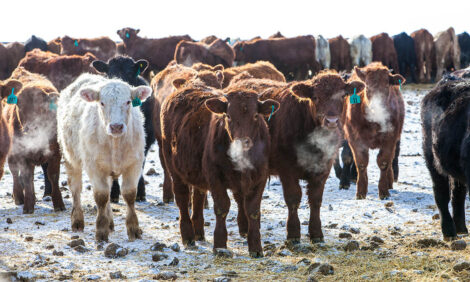Report Shows Processed Meat And Bladder Cancer Link
A new report from researchers at the US National Cancer Institute, Imperial College in London and AARP in Washington suggests that there is a "modest support" for an increased risk of bladder cancer from eating processed meat products.
 10 August 2010
10 August 2010
 3 minute read
3 minute read
The Meat and Components of Meat and the Risk of Bladder Cancer in the NIH-AARP Diet and Health Study says it took as its hypothesis that meat could be involved in bladder carcinogenesis via multiple potentially carcinogenic meat-related compounds related to cooking and processing, including nitrate, nitrite, heterocyclic amines (HCAs), and polycyclic aromatic hydrocarbons (PAHs).
The results have been published in the journal Cancer.
The authors say they comprehensively investigated the association between meat and meat components and bladder cancer.
During seven years of follow-up, 854 transitional cell bladder-cancer cases were identified among 300,933 men and women who had completed a validated food-frequency questionnaire in the large prospective NIH-AARP Diet and Health Study.
The researchers estimated intake of nitrate and nitrite from processed meat and HCAs and PAHs from cooked meat by using quantitative databases of measured values.
Total dietary nitrate and nitrite were calculated based on literature values, the research team said.
Cancer incidence data from the Atlanta metropolitan area were collected by the Georgia Center for Cancer Statistics, Department of Epidemiology, Rollins School of Public Health, Emory University.
Cancer incidence data from California were collected by the California Department of Health Services, Cancer Surveillance Section.
Cancer incidence data from the Detroit metropolitan area were collected by the Michigan Cancer Surveillance Program, Community Health Administration, State of Michigan.
The Florida cancer incidence data used in this report were collected by the Florida Cancer Data System under contract to the Department of Health (DOH).
Cancer incidence data from Louisiana were collected by the Louisiana Tumor Registry, Louisiana State University Medical Center in New Orleans.
Cancer incidence data from New Jersey were collected by the New Jersey State Cancer Registry, Cancer Epidemiology Services, New Jersey State Department of Health and Senior Services.
Cancer incidence data from North Carolina were collected by the North Carolina Central Cancer Registry.
Cancer incidence data from Pennsylvania were supplied by the Division of Health Statistics and Research, Pennsylvania Department of Health, Harrisburg, Pennsylvania.
The Pennsylvania Department of Health specifically disclaims responsibility for any analyses, interpretations, or conclusions. Cancer incidence data from Arizona were collected by the Arizona Cancer Registry, Division of Public Health Services, Arizona Department of Health Services.
Cancer incidence data from Texas were collected by the Texas Cancer Registry, Cancer Epidemiology and Surveillance Branch, Texas Department of State Health Services.
Cancer incidence data from Nevada were collected by the Nevada Central Cancer Registry, Center for Health Data and Research, Bureau of Health Planning and Statistics, State Health Division, State of Nevada Department of Health and Human Services.
The hazard ratios (HR) and 95 per cent confidence intervals (CI) for red meat showed a borderline statistically significant increased risk of bladder cancer, the study says.
The researchers say that positive associations were observed in the top quintile for total dietary nitrite.
The research team adds that these findings provided modest support for an increased risk of bladder cancer with total dietary nitrite and nitrate plus nitrite from processed meat.
Results also suggested a positive association between red meat and PhIP and bladder carcinogenesis. Cancer 2010. © 2010 American Cancer Society.
Note:
Leah M. Ferrucci, PhD 1, Rashmi Sinha, PhD 1, Mary H. Ward, PhD 1, Barry I. Graubard, PhD 1, Albert R. Hollenbeck, PhD 2, Briseis A. Kilfoy, PhD 1, Arthur Schatzkin, MD, DrPH 1, Dominique S. Michaud, ScD 3, Amanda J. Cross, PhD 1.
1 Division of Cancer Epidemiology and Genetics, National Cancer Institute, National Institutes of Health, Department of Health and Human Services, Rockville, Maryland
2 AARP, Washington, District of Columbia
3 Division of Epidemiology, Public Health and Primary Care, Imperial College London, London, UK
Further Reading
Further Reading






